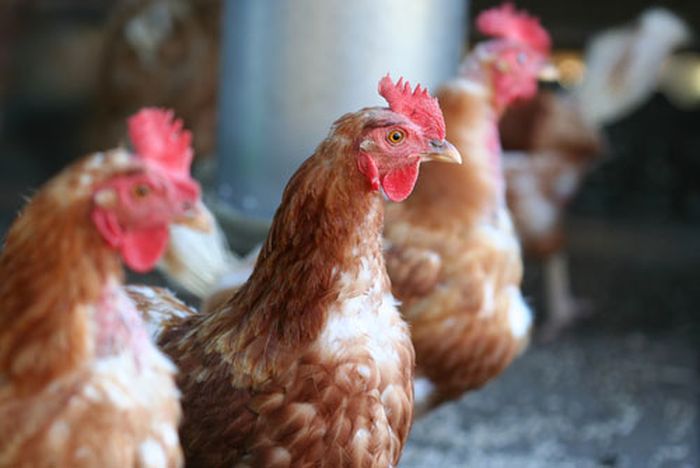Flu Shot May Give You a Boost Against Bird Flu

Getting a seasonal flu shot may give you a bit of protection against a deadly strain of the bird flu virus, a new study suggests.
The study's researchers looked at 28 people who had received annual flu shots since 2007, and measured the levels of their antibodies, which are the proteins in the immune system that bind to pathogens to render them harmless. The researchers specifically looked at 83 antibodies known to bind to H3N2, a common strain of flu that's included in the seasonal flu vaccine.
They found that a small portion of these antibodies — around 7 percent — were also able to bind to the H7N9 flu virus, a new strain of bird flu that first emerged in China in 2013. So far, the virus has sickened hundreds of people, with a death rate around 30 percent.
The findings show that people "do have pre-existing antibodies that could protect against these really novel, avian strains that are circulating in China," said study researcher Patrick Wilson, an associate professor of medicine at the University of Chicago. [6 Flu Vaccine Myths]
Still, it's not known whether the level of antibodies seen in the study participants would be enough to provide full protection against an H7N9 infection. Wilson said he suspects that vaccination with a seasonal flu shot would not fully protect against H7N9, but that if those vaccinated did become infected with the virus, these "cross reactive" antibodies might improve their situation, for example, by reducing how long they are sick or how ill they become.
The study also found that of the 7 percent of antibodies that bound to H7N9, about half were able to completely neutralize the virus, meaning that they blocked infection in cells in a lab dish. The researchers then gave these neutralizing antibodies to mice before infecting the mice with a lethal dose of H7N9 virus. The mice that got the neutralizing antibodies survived, but mice that did not died from infection.
The reason that some antibodies are able to neutralize both seasonal flu viruses and bird flu viruses is most likely because these antibodies bind to the "stalk" of a flu virus, a region that varies little between flu strains. (In contrast, another region, called the "head," varies frequently.) It's thought that figuring out a way to boost levels of these special, "broadly neutralizing" antibodies in people could be the key to creating a universal flu vaccine.
Get the world’s most fascinating discoveries delivered straight to your inbox.
"If we could preferentially activate these antibodies, we could have a better influenza vaccine," Wilson said.
Broadly neutralizing antibodies might also help treat people who have been infected with H7N9, the researchers said. In the study, even the mice that were given broadly neutralizing antibodies 24 hours after infection with H7N9 survived the infection.
The study is published today (Feb. 17) in the Journal of Clinical Investigation.
Follow Rachael Rettner @RachaelRettner. Follow Live Science @livescience, Facebook & Google+. Original article on Live Science.

Rachael is a Live Science contributor, and was a former channel editor and senior writer for Live Science between 2010 and 2022. She has a master's degree in journalism from New York University's Science, Health and Environmental Reporting Program. She also holds a B.S. in molecular biology and an M.S. in biology from the University of California, San Diego. Her work has appeared in Scienceline, The Washington Post and Scientific American.


